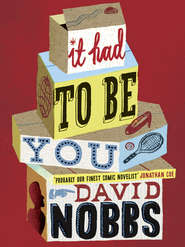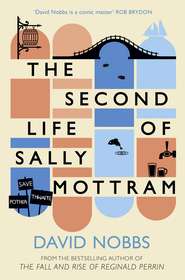По всем вопросам обращайтесь на: info@litportal.ru
(©) 2003-2024.
✖
A Bit of a Do
Автор
Год написания книги
2019
Настройки чтения
Размер шрифта
Высота строк
Поля
‘Yes, you should, because you mean it, and I admire you for it.’
‘It’s just that I think that if we think we have the right to exploit animals because we’re superior to them, that makes us inferior to them because they never exploit us. Does that make me a crank?’
‘No!’
‘He can’t resist an attractive young woman,’ said Betty Sillitoe.
‘Don’t you ever feel jealous?’ said Rita.
‘Oh, he doesn’t mean anything by it. He just likes being near attractive young women.’
‘I envy you.’
‘Rita! She does look a picture, I must say.’
‘Must you?’
‘Rita!’
‘Chickens aren’t like people, Jenny. They don’t have the same feelings. They don’t have the same expectations of life style.’
‘I know. Fish have no nerves in their mouths, foxes enjoy being hunted, lobsters get a sexual thrill out of being boiled alive. I’m sorry. I shouldn’t have said that. Not today.’
Jenny looked round the crowded room. She was searching for help, but no help was at hand. She didn’t want to go on with this conversation, on this day of all days. and yet she couldn’t let it go.
‘But how can you live with yourself?’ she said, ‘knowing how your chickens live.’
And Betty, from her strategic position beside the champagne, smiled indulgently as she watched their lips move.
‘I love him for his foibles,’ she said.
‘You must feel envy sometimes,’ said Rita.
‘No. I wouldn’t want anything in my life to be different from what it is.’
Rita closed her eyes, and swallowed her champagne as if it were medicine.
‘I envy you,’ she said.
‘I don’t look at it the same road as you, Jenny,’ said Rodney. ‘They’re units. Costed items. I employ three hundred people in an area of high unemployment. I couldn’t do that without my rationalized, cost-effective methods.’
The window could have afforded them a pleasant view over the park-like grounds. They could have seen peacocks strutting, songthrushes holding their heads sideways as they listened for their afternoon tea, and a distant water tower, ringed by pines. Rodney and Jenny spurned these attractions.
‘I suppose that’s what people do,’ Jenny said. ‘Compartmentalize. I mean, they say Himmler was very fond of dogs. Or was it Goebbels?’
‘It must have been dogs,’ said Rodney. ‘I don’t think he was at all fond of Goebbels.’
‘No! I meant … oh! How can you joke when I’m comparing you to … oh, not that I mean that you’re really … sorry.’
‘Bless you!’ said Rodney Sillitoe, and he gave her an avuncular kiss which, like many avuncular kisses, held a distant echo of kisses less avuncular.
Jenny was angry. ‘You’re being patronizing now,’ she said. ‘You’re forgiving me because I’m an attractive young thing. I don’t want that. I hate that. I’m sorry. I shouldn’t have said that. Not today.’
She kissed him.
‘Bless them,’ said Betty Sillitoe, watching the kiss.
‘I envy you,’ said Rita.
And in room 108, the father of the groom withdrew from the mother of the bride, in a moment of exquisite ambiguity, of relief and regret, of pride and shame, of ecstasy and horror. It was three minutes to four, and in the lounge and on the terrace the residents were ordering afternoon tea.
Exactly below the wet patch in the double bed in room 108 was the dry, happily innocent head of the bride’s only brother, Simon Rodenhurst, of Trellis, Trellis, Openshaw and Finch. He was talking to Elvis Simcock, the groom’s only brother.
‘I’m sorry to hear you can’t get a job, Elvis,’ he said.
‘Oh, that’s all right, then, Simon,’ said the cynical Elvis. ‘That makes me feel much better about the total uselessness of my life.’
‘I’m trying to be pleasant, Elvis,’ said Simon.
‘Effort, is it?’ said Elvis.
‘I just thought that as we’re related by marriage it might be a good idea if we tried to get on with each other.’
‘You’re right,’ said Elvis. ‘I’ll try. Sorry, Simon.’
Elvis gave Simon a semi-apologetic, semi-embarrassed hint of a smile, and they stood for a moment in a reasonably companionable silence as they searched for suitable topics of conversation.
‘Were you named after …?’ began Simon Rodenhurst.
‘Of course I was, you stupid twit!’ said Elvis Simcock, and he stormed out through the French windows.
And Rita, seeing this, said ‘Oh dear’ and sighed deeply.
‘Rita!’ said Betty Sillitoe, her blonde hair with its unashamedly dark roots mocking her friend’s joylessly careful appearance. ‘Rita! You can’t take responsibility for how the whole of your family behaves, or you’ll crack up. Relax. Have a drink.’
She poured half a glass of champagne for Rita, and topped up her own glass in order to be sociable.
‘Thanks, but I’ve had enough,’ said Rita. She put her glass down. Betty drank half her glass and refilled it from Rita’s glass, so that Rita wouldn’t feel guilty about the waste. You will crack up, Rita, she thought. You’re heading for a collapse, my girl, and where will we be then? What’ll happen to our cosy foursome, our holiday in the South of France, our pleasant life together, our just reward for the modest wealth that we create for this community?
And Rita looked at the door and wondered why on earth Ted was taking so long. And she wondered how long Paul would be, and how they would explain his haircut. Where was her family when she needed them? Spread to the four winds. The panic came over her in waves, and she wanted to scream, and she mustn’t.
Luckily, she hadn’t realized, in all the crush and her self-obsessed panic, that Liz was also absent.
And Ted Simcock drifted into a half-sleep, vaguely conscious of Liz Rodenhurst’s warm buttocks lodged in his crotch in the great warm tent of sensuality and satisfaction which was room 108 of the Clissold Lodge Ho …
The Clissold Lodge Hotel! He sat bold upright, every part of his body rigid, except one.
‘Come on, Liz,’ he said, leaping out of bed. ‘We’ve got to get downstairs.’











